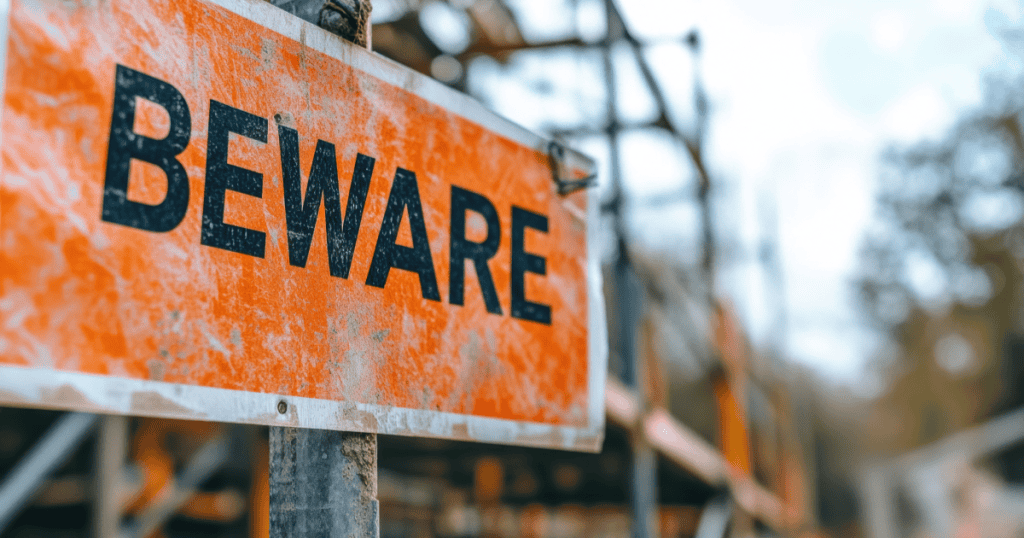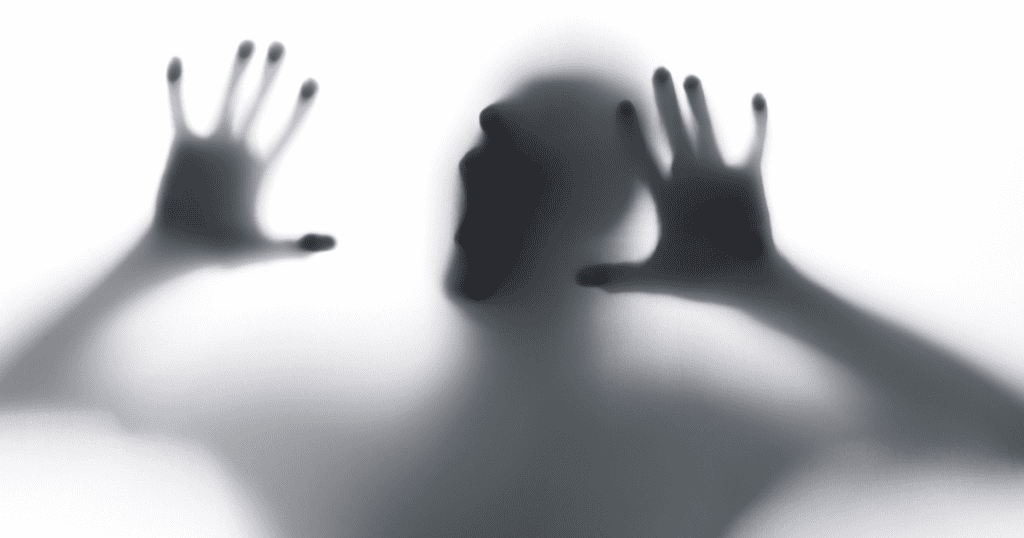It begins like déjà vu. You meet someone new, and the connection feels instant.
Their laugh mirrors your mother’s, their wit carries your sister’s edge, and their gaze has that strange familiarity you can’t quite place.
At first, it feels like fate. But with time, the pattern reveals itself.
What you mistook for “family” was actually a replay of the very chaos you swore you’d left behind.
Control, criticism, and volatility dressed up as closeness.
Psychologists say this isn’t a coincidence. Survivors of dysfunctional families often confuse familiarity with safety.
Years spent navigating toxic dynamics condition the brain to interpret manipulation, mood swings, and emotional games as “normal.”
That conditioning carries into adulthood.
When survivors cross paths with narcissists, psychopaths, or master manipulators, the behavior doesn’t set off alarms.
It feels comfortable, like home.
Researchers group these traits under what’s known as the Dark Triad: narcissism, psychopathy, and Machiavellianism.
Each personality type is destructive on its own, but together they form patterns that survivors are especially vulnerable to repeating.
And for those trying to break free from cycles of abuse, understanding this isn’t just academic.
It’s essential for survival.
Table of Contents
Why Familiar Doesn’t Mean Safe?

Silence in some households signals peace. In mine, it signaled danger.
My self-absorbed mother’s quiet often came before an eruption.
My sister, the golden child, knew how to either ignite or defuse her moods.
I was left in the middle, bracing for whichever storm came next.
For years, I believed this rhythm of tension and sudden calm was simply what family life looked like.
Psychologists warn that trauma doesn’t just wound. It rewires.
A nervous system shaped by unpredictability begins to mistake volatility for normalcy.
When that pattern shows up later in relationships, the body reacts with recognition, even comfort.
It feels like “home,” but familiarity can be the very trap that keeps people tethered to unsafe dynamics.
Researchers call this traumatic bonding: when cycles of cruelty and affection fuse into a powerful loop that feels addictive.
One of my earliest memories of this loop played out at the dinner table.
My mother, after hours of cooking, snapped when my toxic brother joked that the food was too salty.
Her fury landed on me for not intervening.
Moments later, she was smiling again, serving dessert and kissing our cheeks as if nothing had happened. Terror blurred seamlessly into tenderness.
That confusion taught me to equate chaos followed by crumbs of affection with love itself.
The realization as an adult was double-edged.
It was crushing to see how much of my adult life had been shaped by those invisible patterns.
But it was also liberating to understand I wasn’t broken. I was conditioned.
And anything conditioned can be undone.
The Dark Triad Explained

Narcissism
For decades, psychologists have noted how easily narcissism gets mistaken for confidence.
A sweeping meta-analysis confirmed the pattern: behind the show of boldness lies entitlement, antagonism, and diminished empathy.
It’s a blueprint survivors recognize instantly because they live it.
Narcissists crave validation like oxygen, but the catch is that approval is always conditional. It flows only when their ego is being fed.
I grew up inside that cycle.
My mother wore her narcissism like armor.
She would have loud proclamations about her sacrifices, endless stories about her resilience, and an unspoken rule that admiration was non-negotiable.
Independence, meanwhile, wasn’t encouraged. It was punished.
If I achieved anything on my own, I was told I was ungrateful.
The research becomes real in moments like my high school competition win.
I came home proud of a regional award, only to be met with a sigh and the words, “Why didn’t you win first place? Don’t embarrass me.”
Hours later, she stood at the ceremony bragging to relatives about my talent, then berated me in private for not living up to her image.
Her praise wasn’t about me at all. It was about how I reflected on her.
This contradiction exposes the heart of narcissism.
What looks like dominance or emotional strength is often just fragile self-worth held together by control.
Abuse survivors, especially children, often mistake that display for authority.
It can take years to recognize the truth: beneath the bravado sits insecurity so brittle it shatters the moment it isn’t applauded.
Psychopathy

When most people hear the word “psychopath,” they picture violent criminals.
But research shows psychopathy is not always so obvious.
It can live quietly within families, workplaces, or communities, concealed behind charm and social ease.
A 2017 study found that individuals with high psychopathic traits show markedly reduced emotional empathy.
They also struggle with what psychologists call “emotional contagion,” which is the ability to feel another person’s feelings.
In plain terms, they don’t absorb your joy or pain the way most people do. Instead, they can mimic those emotions when it serves them.
That distinction rang painfully true in my childhood.
My narcissistic brother could work a room with ease. Around relatives, he became the golden boy.
He would have an arm slung casually around my shoulder, a quick joke to draw laughter, a feigned look of concern that earned him praise as “such a good kid.”
But behind closed doors, the mask slipped.
He taunted my younger cousins until they cried, and when I begged him to stop, he laughed.
Not the laugh of someone teasing, but one sharp and careless enough to make my stomach drop.
The moment that stays with me most vividly is when he broke a necklace my father had given me, one of my few treasured possessions.
I cried in front of him, waiting for some flicker of remorse, but there was nothing.
His face stayed blank, as if my pain didn’t register at all.
Hours later, he staged an entirely different act for my mother, leaning in to comfort me, recasting himself as the caring brother.
That’s the danger of psychopathy when it hides in everyday life: the sleight of empathy.
When you grow up around it, you learn to mistake performance for care.
You don’t question the charm, even when the compassion beneath it is hollow.
Machiavellianism

If narcissists demand attention and psychopaths lack conscience, Machiavellians play the long game.
Their power lies in strategy, manipulation, and control disguised as loyalty.
My aunt was a master of this.
She would always pit cousins against one another with whispers, “Did you hear what she said about you?”
She thrived on secrets, pulling strings quietly while pretending to be the peacemaker.
Research shows Machiavellians use deception systematically, reporting lower intimacy and trust in relationships.
Manipulation isn’t occasional. It’s their way of life.
Her most calculated move came during a family crisis.
When my grandfather fell ill, she positioned herself as the “organizer,” deciding who contributed what.
One night, she called me, “Your brother told me you don’t care about Grandfather. Are you really not pitching in?”
My stomach dropped. I had already given money directly to my dad.
Later, I learned she told each sibling a different story.
She painted me as stingy, another cousin as selfish, and herself as the only reliable one.
She turned grief into leverage.
That’s the hallmark of Machiavellianism. They weaponize information.
Unlike narcissists who seek the spotlight or psychopaths who reveal themselves through coldness, Machiavellians thrive in the shadows.
They hoard secrets and spend them like currency, appearing loyal while quietly eroding trust.
Based on research, Machiavellians score high on “strategic manipulation.”
They study people, identify weaknesses, and exploit them over time.
Survivors often mistake them for allies until they realize every kindness had strings attached.
That’s what makes them so dangerous. They don’t just steal trust, they weaponize it.
Survivors often walk away not with scars of obvious abuse, but with a fog of confusion, realizing they were pawns in someone else’s game.
Turning Familiarity Into Tactical Intelligence

For years, I thought my instincts betrayed me.
Why did I keep ending up around people who drained me? Why did “safe” always turn out to be dangerous?
Then one day, a small shift happened. I met someone at work who immediately felt too familiar.
They had my toxic sister’s sarcasm and my brother’s easy charm.
Normally, I would’ve leaned in, mistaking that pull for connection. But something in me paused.
Instead of rationalizing, I trusted the unease. I kept my distance.
That moment felt like reclaiming power.
Familiarity doesn’t have to be a trap. It can be radar.
When you recognize the patterns of the Dark Triad, you stop excusing them. Instead, you use them as early-warning systems.
Survivors can turn decades of conditioning into tactical intelligence, spotting danger before it fully enters their lives.
These are the practical steps that helped me:
- Name the pattern. Instead of saying, “Maybe I’m overreacting,” I said, “This reminds me of how my sister treated me. That’s data, not paranoia.”
- Check consistency. Toxic personalities can act kindly in spurts, but over time, their mask slips. I learned to pay attention to patterns, not promises.
- Pause before investing. If someone felt too much like home too fast, I took it as a sign to slow down.
These aren’t just emotional defenses. They’re tactical moves.
Survivors are not broken. We’re strategists in training.
From Prey to Pattern Reader

Psychologists studying personality disorders have long warned that survivors of toxic relationships often mistake intuition for paranoia.
What feels like a baseless “ick” is the body’s alarm system, an early warning that something isn’t safe.
Research shows that survivors can retrain these instincts.
We can learn to recognize red flags and trust their internal signals rather than dismissing them.
For me, the turning point came when I stopped chasing what felt familiar and started choosing what felt peaceful.
That shift was shaped by the people who anchored me in steady love.
My dad defended me quietly whenever my mother’s rage spun out of control.
My cousins gave me laughter and safety when family drama closed in.
And my husband proved that love doesn’t require tiptoeing around landmines.
Those relationships became my compass, teaching me that care doesn’t need chaos to be real.
Understanding frameworks like the “Dark Triad” offers survivors a way to map recurring patterns.
Instead of asking, “Why do I keep ending up with the same kind of people?” we begin to see the wiring.
These personalities thrive on the comfort of dysfunction. But once we name the pattern, we stop being pawns in someone else’s game.
The lesson is simple but profound: familiar does not equal safe.
Connection doesn’t have to mean conflict.
And survival is not just about escaping abuse. It’s about strategy, intelligence, and freedom.
We are not broken. We are becoming readers of patterns.
And that shift is the ultimate victory.
Related posts:
- How To Talk Like a Woman Narcissists Can’t Manipulate (Even If They Try)
- 8 Unspoken Rules Every Narcissist Lives By (And How They Enforce Them on You)
- 10 Ugly Truths That Shatter The ‘Family First’ Myth Narcissists Love to Use Against You
- 3 Non-Negotiable Reasons You Must Cut Off Narcissistic People (Yes, Even Family)
- How Narcissistic Parents Reveal Their Own Weakness Every Time They Pick a Scapegoat?


